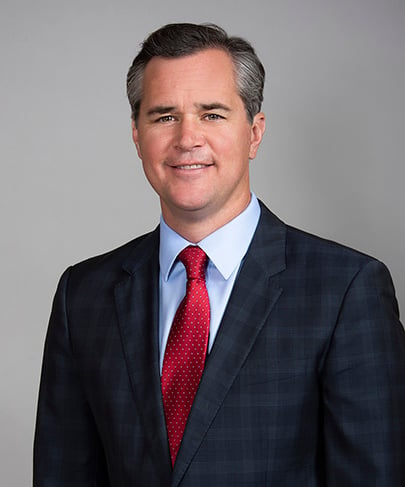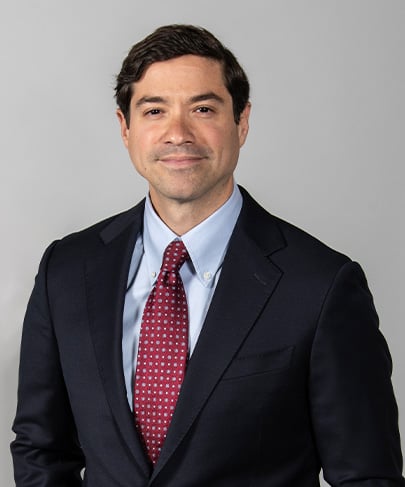Ohio Department of Agriculture Releases Proposed Rules for the State’s Hemp Program
Download PDF- Crow, Scot C. O'Donnell, Terrence Vorys, William V.
- Industry Alerts
Click “Subscribe Now” to get attorney insights on the latest developments in a range of services and industries.
On October 9, 2019, the Ohio Department of Agriculture (the “Department”) released proposed statewide regulations for hemp cultivation and processing. The Department crafted the rules in response to the Ohio General Assembly’s recent passage of Senate Bill 57, which legalized hemp cultivation and processing in Ohio, and decriminalized hemp products. Below is an initial summary of the rules, which have been submitted to Ohio’s Common Sense Initiative (“CSI”)—an entity that reviews all administrative rules to ensure they do not create an excessive burden on business and job creation. The Department has also opened a public comment period, where stakeholders can submit feedback via email to ecomments@agri.ohio.gov. The public comment period will close on October 30, 2019.
After CSI releases its business impact analysis and the public comment period closes, the Department will finalize any revisions and send the rule package to the Joint Committee on Agency Rule Review (“JCARR”)—a legislative body that reviews all administrative rules to ensure state agencies do not exceed their statutory authority. JCARR will have jurisdiction over the proposed rules for 65 days. During this time, the committee will hold hearings, accept public testimony, and generally work to ensure that the rules do not conflict with other administrative regulations; that the Department has provided a complete and accurate fiscal analysis; and that any adverse impacts on business have been adequately justified. Based on its review, the committee may approve the rules or send them back to the Department for additional consideration.
The Department appears to be targeting mid-January 2020 as an effective date for the proposed hemp rules, which can be accessed through the following link under “Public Comment Period and CSI Review.”
Hemp Cultivation
(Proposed O.A.C. §§ 901:14-1-01 et seq.)
Cultivation License. Hemp cultivators may apply for a license, which is valid for three years. Renewal thereafter will require, among other things, the submission of a new application and associated fee, as well as updated background checks. Those who cultivate hemp pursuant to a Department-approved university research program need not obtain a cultivation license. Employees under the licensee’s instruction and control, and in the designated growing location, similarly need not obtain a license.
Application.
- Application window will be November 1 through March 31 each year.
- The Department will provide a form application and will require basic identifying information about the applicant, the growing location, and, if the applicant is a business entity, the same for each person having a financial interest greater than 10%.
Background Check.
- Each applicant, and every person with greater than a 10% interest in an applicant business entity, must submit to a criminal records check and investigation.
- Assignment of a license will require relevant transferees to submit to this same background check.
- The Department will deny a license if any person required to submit to a background check has plead guilty to or been convicted of a disqualifying offense in the preceding ten-year period.1
Fees.
- The application fee is $100.
- Cultivators must pay an annual license fee of $500.
- There will also be various fees for site modification and testing, none of which will individually exceed $300.2
Cultivation Research Exemption. Any private or nonprofit entity (other than a university) interested in obtaining a cultivation license for research purposes only will apply for such license using the hemp cultivation research application form provided by the Department, and will be exempt from compliance with several of these proposed rules, including:
- Land use restrictions concerning the size and plant density of a particular growing location;
- Restrictions on varieties of hemp to be cultivated; and
- Planting, harvest, production, and destruction reporting and other recordkeeping requirements.
Land Use Restrictions.
- Cultivation must occur on property owned or leased by the cultivator, and cannot be comingled with other crops without prior approval from the Department.
- Hemp cannot be planted or grown within one hundred feet of any residential structure, and cannot be handled or stored inside any residential structure.
- Hemp cannot be planted or grown within half a mile from a licensed marijuana cultivator, or within five hundred feet of property on which either a school or public park is situated.3
- Without prior approval from the Department, cultivators cannot plant or grow hemp in an outdoor growing location of less than one-quarter acre, plant/grow in an indoor location of less than one-thousand square feet, or plant/grow in a location in a quantity of less than one-thousand plants.
Cultivation and Harvesting Operations.
- Licensed cultivators will be limited in the varieties of hemp they can grow. Limitations will be set forth on the Department’s website: www.agri.ohio.gov.4
- Cultivators producing hemp seeds may not sell to any person or entity in Ohio who is not licensed as a cultivator.
- Cultivators will be subject to random sampling in addition to scheduled sample collections to ensure compliance with these proposed rules. Harvesting must occur not more than fifteen days following the date of a sample collection.
- Sampled hemp with a delta-9 THC level greater than 0.3 percent will result in at least partial destruction of hemp at the site from which the sample was taken, as well as any plant material it had commingled with, and may subject the cultivator to further enforcement action.5
- The rules contemplate a thorough reporting and recordkeeping scheme that accounts for the entire cultivation process, including annual planting and harvest reports, as well as production and destruction reports.
Enforcement / Cooperation with Law Enforcement.
- The Department will revoke a license if any person required to have completed a background check pleads guilty to or is convicted of a disqualifying offense during the time of licensure.
- Failure to comply with any of the proposed rules can result in denial, suspension, or revocation of the cultivation license, even if such failures are negligent (rather than intentional).6
- The Department will provide information about licensed cultivator operations to any requesting federal, state, or local law enforcement agency.7
Hemp Processing
(Proposed O.A.C. §§ 901:14-2-01 et seq.)
Processing License. Processors may apply for a license, which is valid for three years and requires an application and background check—similar to the rules in place for cultivators. The application will also be contingent upon passing a facility inspection. Those who process hemp pursuant to a Department-approved university research program need not obtain a processing license. Employees under the licensee’s instruction and control similarly need not obtain a license.
Application.
- The Department will provide a form application and will require basic identifying information about the applicant, the growing location, and, if the applicant is a business entity, the same for each person having a financial interest greater than 10%.
- Applicant must provide, among other things, the types of hemp products that it will produce. An application must be updated annually.
Background Check.
- Each applicant, and every person with greater than a 10% interest in an applicant business entity, must submit to a criminal records check and investigation.
- Assignment of a license will require relevant transferees to submit to the same background check.
- The applicant will be denied licensure if any person required to submit to a background check has plead guilty to or been convicted of a felony to a disqualifying offense in preceding ten years.
Fees.
- The application fee is $100.
- The annual license fee is $500 for those processing raw fiber and grain components of the plant; $3,000 for those processing the raw floral component; and up to $500 for processors using cannabinoids in human and animal food, dietary supplements, cosmetics, and/or personal care products.
- A processor of more than one component shall pay the annual license fee for each component processed.
Land Use Restrictions. Similar to the hemp cultivation license, licensed processors will be subject to several restrictions as to their processing site’s proximity to residential areas, schools, and public parks. However, the rules create a land use exception for university-conducted research, as approved by the Department.
- Processors may not process, handle, or store hemp or hemp products in or adjacent to any residential structure.
- Processors may not process hemp in any location within five hundred feet of property on which either a school or public park is situated.
Financial Responsibility. Licensed processors are required to meet financial responsibility standards as set forth (in part) below.
- Have and maintain current assets at least equal to five percent of the greater of either the total purchases of the raw, unprocessed hemp plant material made in the previous calendar year, or $10,000.
- Possess a surety bond subject to redemption by the state upon a suspension, revocation, or insolvency of a processor for the purpose of repaying the licensed processor’s obligations to creditors which are Ohio-licensed hemp cultivators.
Processing Operations and Requirements. Licensed processors will be subject to various operational and reporting requirements.
- Processors extracting cannabinoids from hemp shall obtain their plant material from either an Ohio-licensed hemp cultivator, a licensed cultivator of another state’s USDA-approved hemp program, or an entity residing in a jurisdiction where hemp material has been tested in accordance with these rules. Those processors using already-extracted cannabinoids in their products must obtain such from a licensed hemp processor in the state of Ohio or an inspected extraction facility in another state.
- Processors extracting cannabinoids from hemp must provide and follow an extraction operational plan that is consistent with those specific extraction methods and trainings contemplated by these rules. 9
- All extracted cannabinoids, and hemp products containing cannabinoids, shall be equal to or less than 0.3 percent delta-9 THC. This is true even for those cannabinoid-containing materials that are to be incorporated into other hemp products before being offered for sale. 10
- Before being offered for sale, all hemp products will be thoroughly tested for microbial contaminants, cannabinoid potency (including THC and CBD), heavy metals, pesticide and fertilizer residue, and residual solvents. Products derived exclusively from hemp seed will be exempt from this laboratory testing.
- Hemp products must meet several labeling requirements, including identification of the type and amount of cannabinoids contained therein, the product’s unique batch or lot coding, and other such requirements imposed by the FDA.11
- Those products containing cannabinoids, other than products derived exclusively from hemp seed oil, must provide a warning that certain consumers should consult a health care professional before use.12
- These products will also be subject to the various other food and drug regulations set forth by the state of Ohio regarding adulteration and misbranding.
- Processing facilities will be subject to inspection and sampling and will be required to provide unrestricted access to all of the facilities used in the processing, handling, and storage of hemp.
- The rules also outline several requirements for the disposal of waste produced by the various hemp processing operations contemplated herein, to include reporting requirements concerning such waste disposal.
Enforcement.
- The Department will revoke a license if any person required to have completed a background check pleads guilty to or is convicted of a disqualifying offense during the time of licensure.
- Failure to comply with any of the proposed rules can result in denial, suspension, or revocation of the cultivation license, even if such failures are negligent (rather than intentional).
1 Proposed Rule O.A.C. § 901:14-1-01(H). As used in both the Hemp Cultivation and Hemp Processing rules, “disqualifying offense” means any felony involving a controlled substance including, but not limited to, violations of R.C. §§ 2907.02(A)(1)(a) (rape), 2907.05(A)(2) (gross sexual imposition), 2923.16(D)(2) (improperly handling firearms in a motor vehicle), 2923.241 (designing or operating a vehicle with hidden compartments to transport a controlled substance), and Chapters 2925 (drug offenses), 3719 (controlled substances offenses), and 3796 (medical marijuana control program offenses).
2 Proposed Rule § 901:14-1-04. Includes a site modification fee of $250 for each GPS coordinate location change for each growing location. Testing fees include a $150 pre-harvest sample fee, a $300 fee for any secondary pre-harvest sampling, and a $300 post-harvest retest fee.
3 Proposed Rule § 901:14-1-06. The licensed marijuana cultivator setback is measured from the closest point of each of the property lines. However, the school or public park setback is measured from the hemp plants to the closest point of the property lines of the school or park.
4 The list of permissible varieties is forthcoming.
5 Proposed Rule § 901:14-1-10. The rules do contemplate a procedure whereby a licensed cultivator may request a second sample to be tested from the same location from which the failed sample was taken. Regardless, the cultivator may maintain possession of the bare hemp stalks.
6 Proposed Rule § 901:14-1-99. Enforcement action will be directed whenever a licensee or applicant negligently violates these rules three or more times in any five-year period.
7 Proposed Rule § 901:14-1-15. The proposed Hemp Processing Rules do not contain a similar provision.
8 Proposed Rule § 901:14-2-06. Five hundred feet measured from the closest point of the property lines.
9 Proposed Rule § 901:14-2-12. The rules outline the specific methods, solvents, and gases that are permitted to be used in the manufacture of hemp products.
10 Proposed Rule § 901:14-2-10. In other words, all extracted cannabinoids must be brought down to a delta-9 THC level of 0.3 percent or below before final formulation or manufacturing of the final product. Oil of a greater THC content shall not be added to another hemp product.
11 Proposed Rule § 901:14-2-17. Such labeling requirements will not apply to hemp products made exclusively from hemp fibers. The FDA labeling requirements however, as delineated by product classification (i.e., “food”, “dietary supplement”, and/or “cosmetic product”), will apply to all hemp products.
12 Proposed Rule § 901:14-2-17. Consumers who are pregnant, breast feeding, currently taking medications, or under 18 years of age.
This client alert is published by Dickinson Wright PLLC to inform our clients and friends of important developments in the field of cannabis law. The content is informational only and does not constitute legal or professional advice. We encourage you to consult a Dickinson Wright attorney if you have specific questions or concerns relating to any of the topics covered in here.
Related Practices
Contacts

Recent Insights
- Industry Alerts Five Upcoming Changes to Ohio’s Medical Marijuana Laws & Recreational Update
- Industry Alerts Plugged In: An EV Newsletter - Vol. 1 No. 1
- Industry Alerts Ohio Legislature Adopts New Wind and Solar Siting Law S.B. 52 Requires County Commission Approval
- December 19, 2025 Industry Alerts Marijuana Rescheduling Pending Despite New Executive Order
- December 03, 2025 Industry Alerts TABC Tightens Rules on Hemp-Derived Cannabinoid Products, COAs, and Retail Sales
- November 17, 2025 Industry Alerts Congress Moves to Redefine Hemp: One Year to Reshape a Multi-Billion Dollar Industry
- October 03, 2025 Industry Alerts Michigan's Wholesale Marijuana Tax: Preliminary Thoughts and Observations
- September 23, 2025 Media Mentions Jonathan Wachs was recently quoted in a Business Monthly article, “Federal cannabis rescheduling would boost industry profits in Maryland.”
- September 2, 2025 In the News Scot Crow and Benjamin Sobczak Named to the 2025 Top 200 Cannabis Lawyers List


